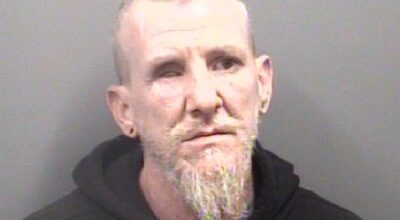NC lawyers reject arguments in election lawsuits
Published 12:00 am Monday, October 21, 2013
RALEIGH (AP) — Attorneys for the state of North Carolina and Gov. Pat McCrory on Monday requested that a pair of federal lawsuits challenging substantial changes to portions of a law overhauling elections in the state be dismissed.
Offering their initial formal responses to litigation filed in August on the same McCrory signed the bill into law, the lawyers denied all of the racial discrimination allegations made by civil rights and election advocacy groups and voters about the legislation.
The lawsuits seek to throw out new rules requiring photo identification to vote starting in 2016, reducing the number of early-voting days by a week and eliminating same-day registration during the early-voting period, among other steps. The lawsuits argue the changes are dramatic and would make it disproportionately harder for black citizens to vote, turning back the clock on voting rights.
The responses lacked explanations why the portions of the law challenged on the basis of the Voting Rights Act and the U.S. Constitution should be upheld. Instead those responses largely stuck to lawyerly language admitting facts or denying allegations from dozens of paragraphs of the original litigation.
Bob Stephens, McCrory’s chief legal counsel, said in a statement “the allegations made by the plaintiffs are simply wrong as a matter of law and fact. The governor remains confident that the law will be upheld.”
Speaking separately Monday in Washington at a conservative think tank, McCrory said the law “protects the integrity of our ballot box” and many changes made still keep North Carolina’s election laws in line with those in the majority of other states in many areas.
The lawsuits “are political and without merit, because our (modified) laws have been greatly exaggerated,” he said at The Heritage Foundation.
Lawyers representing the state chapter of the National Association for the Advancement of Colored People said later Monday the responses were thin and didn’t give any new explanation to judges why the law should be upheld.
“They set out no justification for the law,” said Penda Hair, a Washington-based civil rights attorney, during a conference call. Hair said “we believe we have a very strong and compelling case” to block what the challengers call a deliberate effort by Republican legislative leaders and McCrory to discourage blacks and other groups from voting.
“Voting is really the basic foundation of our democracy and no elected official should attempt to make it harder for people to participate,” state NAACP president the Rev. William Barber said.
The state’s responses don’t address two other lawsuits, including one filed by U.S. Attorney General Eric Holder and a state lawsuit challenging the voter ID requirement alone. The state doesn’t have to file those responses until later this fall. But the attorneys did ask federal judges to delay rulings on the photo ID challenge in until the state lawsuit filed in Chatham County is resolved.
“Resolution of this case may moot or modify the federal issues in this case,” the responses said.
The responses were filed jointly by Alec Peters, a lawyer from Attorney General Roy Cooper’s office and private attorney Tom Farr, both representing the State Board of Elections. Joining the responses were Stephens and outside attorney Karl Bowers, who are representing McCrory.
Cooper, a Democrat laying the groundwork for a 2016 gubernatorial bid, publicly spoke out against the election law in the summer and urged McCrory to veto the bill. His opposition caused McCrory to hire Bowers to help with defending the law.
Cooper said Bowers’ hiring was unnecessary and that he would separate his personal views from his constitutional duties defending the state, as he’d done before. But Stephens said earlier this month Cooper’s comments led to questions of Cooper’s effectiveness.
McCrory said at The Heritage Foundation on Monday that Cooper “can have his personal opinion, but as a lawyer he should not publicize (his) personal opinion … good lawyers don’t do that.” Cooper has said engaging in public policy issues as he did is different from discussing legal specifics, which he hasn’t done.



